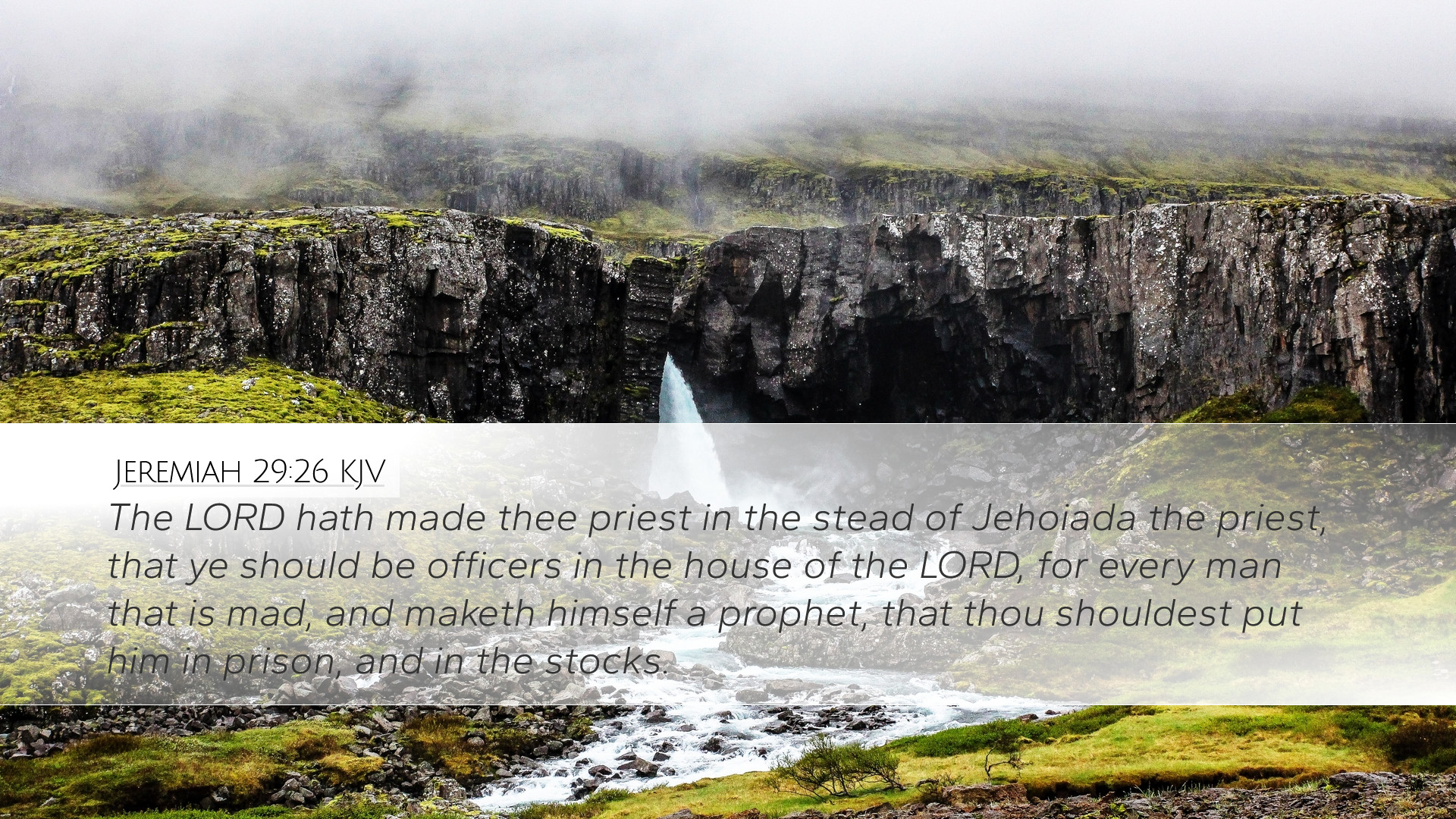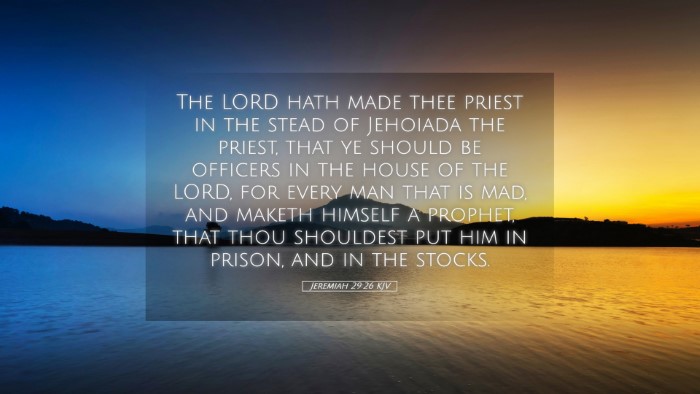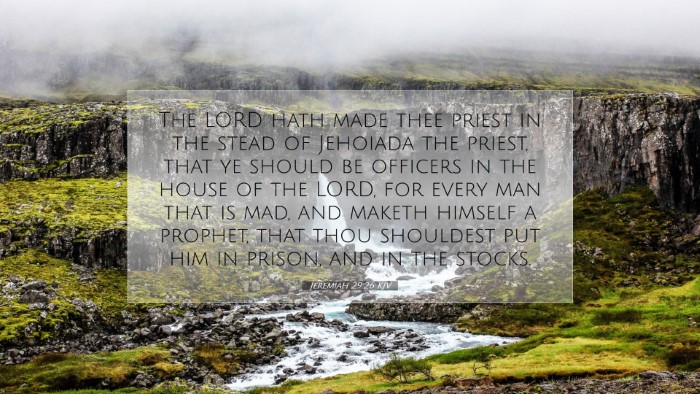Commentary on Jeremiah 29:26
Contextual Background
The Book of Jeremiah is set against the backdrop of the Babylonian exile, a time of turmoil and displacement for the people of Judah. Jeremiah, often referred to as the "weeping prophet," conveyed God’s messages during a period of national decline. Chapter 29 addresses the exiles in Babylon, providing them guidance and, crucially, hope. In verse 26, we encounter a specific letter addressed to a false prophet named Shemaiah, illustrating the challenges posed by misleading messages in the diaspora.
Verse Analysis
Jeremiah 29:26 states, “The Lord has made you priest instead of Jehoiada the priest, so that there should be officers in the house of the Lord over every man that is mad, and that prophesies, to put him in prison and in the stocks.” This verse highlights God's establishment of authority figures in the midst of chaos, emphasizing the need for true prophetic guidance during a time filled with confusion and falsehood.
Commentary Insights
Matthew Henry's Commentary
Matthew Henry emphasizes the profound weight of authority that God delegates in the priesthood. He views the appointment of Shemaiah as a corrective measure to address the outbursts of false prophecy among the exiles. The text reflects God's sovereignty over those claiming to speak on His behalf. Henry warns against the chaos that comes when spiritual authority is misdirected, urging believers to discern true messages from God amidst the noise of erroneous teachings.
Albert Barnes' Notes on the Bible
Albert Barnes explains that the verse illustrates the necessity for godly leadership. He points out that Shemaiah was appointed to restrain the madness of false prophets who disrupted the faith of the people. Barnes elaborates that this authority serves to guard the spiritual wellbeing of the exiles and emphasizes the critical nature of sound doctrine during periods of crisis. He urges contemporary leaders to maintain a commitment to biblical truth in their own contexts.
Adam Clarke's Commentary
Adam Clarke discusses the importance of the priestly role described in this verse. He posits that the role of a priest extends beyond mere ritualistic duties, as it encompasses the responsibility to guide, instruct, and correct the people in their understanding of God’s will. Clarke notes that such authority is divinely instituted to protect the community from the dangers of heresy and confusion, stressing the intrinsic need for wise and faithful leadership during dislocating times like exile.
Theological Implications
The broader theological implications surrounding Jeremiah 29:26 resonate deeply with the nature of divine authority and the call for true prophets and leaders within the church. The text presents a stark warning against false prophecies and emphasizes the need for spiritual discernment among God’s people. This calls pastors, theologians, and learners of the Bible to actively engage in understanding and promoting true doctrine while contesting erroneous teachings.
Practical Applications
- Discernment in Leadership: Modern leaders within the church must cultivate discernment, ensuring that their messages align with biblical truth, especially in a culture rife with competing narratives.
- Empowerment of True Prophecy: The calling of leaders should be grounded in their commitment to guiding the faithful correctly. This applies not only to pastors but to all believers encouraged to speak truthfully of God’s Word.
- Guidance during Crisis: In times of uncertainty, followers of Christ can draw on the assurance found in God's appointment of leaders to navigate their spiritual journeys thoughtfully.
Conclusion
Jeremiah 29:26 serves as a critical reminder of the ongoing need for true prophetic leadership within the community of faith. As highlighted in the insights from the commentaries, the role of God-appointed leaders is vital, especially during tumultuous seasons. Consequently, the faithful are encouraged to remain steadfast in their commitment to truth, ever vigilant against the distractions of false prophecies that may lead them astray.


